Below is an example of the Fork function in action. Below is also the output. My main question has to to do with the a fork is called how values are changed. So pid1,2 and 3 start off at 0 and get changed as the forks happen. Is this because each time a fork happens the values are copied to the child and the specific value gets changed in the parent? Basically how do values change with fork functions?
#include <stdio.h>
#include <sys/types.h>
#include <unistd.h>
int main() {
pid_t pid1, pid2, pid3;
pid1=0, pid2=0, pid3=0;
pid1= fork(); /* A */
if(pid1==0){
pid2=fork(); /* B */
pid3=fork(); /* C */
} else {
pid3=fork(); /* D */
if(pid3==0) {
pid2=fork(); /* E */
}
if((pid1 == 0)&&(pid2 == 0))
printf("Level 1\n");
if(pid1 !=0)
printf("Level 2\n");
if(pid2 !=0)
printf("Level 3\n");
if(pid3 !=0)
printf("Level 4\n");
return 0;
}
}
Then this is the execution.
----A----D--------- (pid1!=0, pid2==0(as initialized), pid3!=0, print "Level 2" and "Level 4")
| |
| +----E---- (pid1!=0, pid2!=0, pid3==0, print "Level 2" and "Level 3")
| |
| +---- (pid1!=0, pid2==0, pid3==0, print "Level 2")
|
+----B----C---- (pid1==0, pid2!=0, pid3!=0, print nothing)
| |
| +---- (pid1==0, pid2==0, pid3==0, print nothing)
|
+----C---- (pid1==0, pid2==0, pid3!=0, print nothing)
|
+---- (pid1==0, pid2==0, pid3==0, print nothing)
Ideally below is how I would like to see it explained as this way makes sense to me. The * are where my main confusion lies. When the child forks for example pid1 = fork(); that creates a process with all the values of the parent, but does it then pass up a value like lets say 1 to the parents pid1? Meaning the child would have pid 1=0, pid2=0 and pid3=0 and the parent then as pid1=2 and pid2 and 3 equal to 0? 